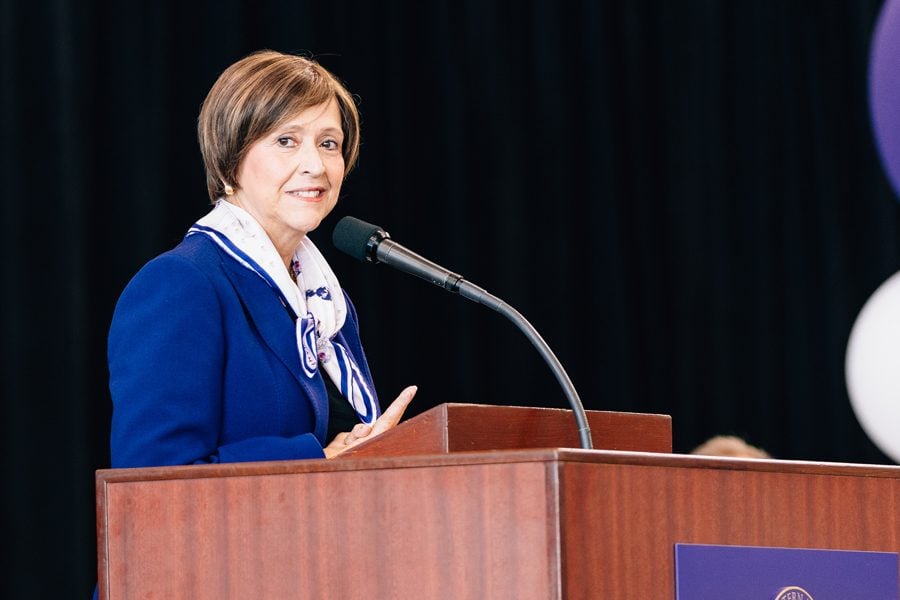Students share grievances about SAE return, housing rates at community dialogue
Noah Fricks-Alofs/Daily Senior Staffer
Patricia Telles-Irvin, the vice president for student affairs, defended the new two-year live-on requirement during Monday’s community dialogue. Students also expressed concerns about support for students who have experienced sexual violence.
October 1, 2018
Students discussed hot-button topics with administrators Monday at the school year’s first community dialogue, an event aimed at bridging the gap between stakeholders in the NU community.
The return of the Sigma Alpha Epsilon fraternity was among the topics of most interest to students, in addition to the new two-year on-campus residency requirement and spaces for low-income students. Todd Adams, the dean of students, clarified that the fraternity was allowed to return by the University after meeting requirements established by its one-year suspension, which was separate from the Interfraternity Council’s decision to cease recognition of SAE.
Students in attendance, many of them activists on campus, expressed concern about the chapter’s return and administrators’ support of sexual assault survivors.
Sarah Wake, the interim associate vice president of equity, outlined the University’s outreach efforts and resources for students who have experienced sexual violence. “We are trying to do more proactive outreach, and not just reactive to things, but really get out in front of the community and talk about places where we can go,” she said.
Wake added that all students will be required to complete a sexual misconduct training in 2019.
Some students took issue with the new requirement that students live on campus through their sophomore year, saying that it imposes additional burdens to low-income and first generation students.
“When I was brought to this campus, I was asked to think about what we could do to create a greater sense of community, a greater sense of engagement and a greater sense of inclusion,” said Patricia Telles-Irvin, the vice president for student affairs. “The idea is that when you stay on campus, you’re actually going to be connected and feel a greater affinity to Northwestern.”
In response to a question about how dorm rates are determined, Jennifer Luttig-Komrosky, the executive director of residential services, said her office previously reduced the number of different dorm rates from over 30 to just seven. These rates, she said, are applied to residences with similar amenities, and will soon get revised because of new buildings and renovations.
Toward the end of the discussion, students began taking issue with administrators’ answers to concerns, saying they were evading questions.
“We are here because we want to listen and we aren’t giving you excuses, but we’re trying to lay out the process,” said Jabbar Bennett, associate provost and chief diversity officer. “It takes time to make a lot of things happen.”
Email: [email protected]
Twitter: @_perezalan_


